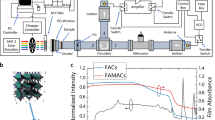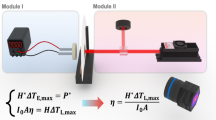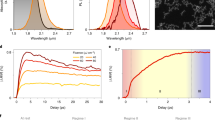Abstract
WHEN ultra-violet radiation is absorbed by atoms in a solid, one of two things may happen. Electrons may be freed from the parent atoms or impurity centres, in which case these electrons are able to take part in conduction processes and are said to be in the conduction band. On the simplest view, it follows from this that photoconduction is to be associated with a hyperbolic decay law. On the other hand, electrons may be raised to states lying below the conduction band, in which case the electrons are still bound to the parent atoms and are unable to take part in conduction. Electrons in this condition are said to be in excitation states, and the phosphorescence decay law should then be exponential.
This is a preview of subscription content, access via your institution
Access options
Subscribe to this journal
Receive 51 print issues and online access
$199.00 per year
only $3.90 per issue
Buy this article
- Purchase on Springer Link
- Instant access to full article PDF
Prices may be subject to local taxes which are calculated during checkout
Similar content being viewed by others
References
Randall, Trans. Farad. Soc., 35, 13 (1939).
Strange, Trans. Farad. Soc., 35, 95 (1939).
Randall, Proc. Roy. Soc., A, 170, 272 (1939).
Author information
Authors and Affiliations
Rights and permissions
About this article
Cite this article
RANDALL, J., WILKINS, M. Luminescence and Photoconductivity of Solids. Nature 143, 978–979 (1939). https://doi.org/10.1038/143978b0
Issue Date:
DOI: https://doi.org/10.1038/143978b0
Comments
By submitting a comment you agree to abide by our Terms and Community Guidelines. If you find something abusive or that does not comply with our terms or guidelines please flag it as inappropriate.



